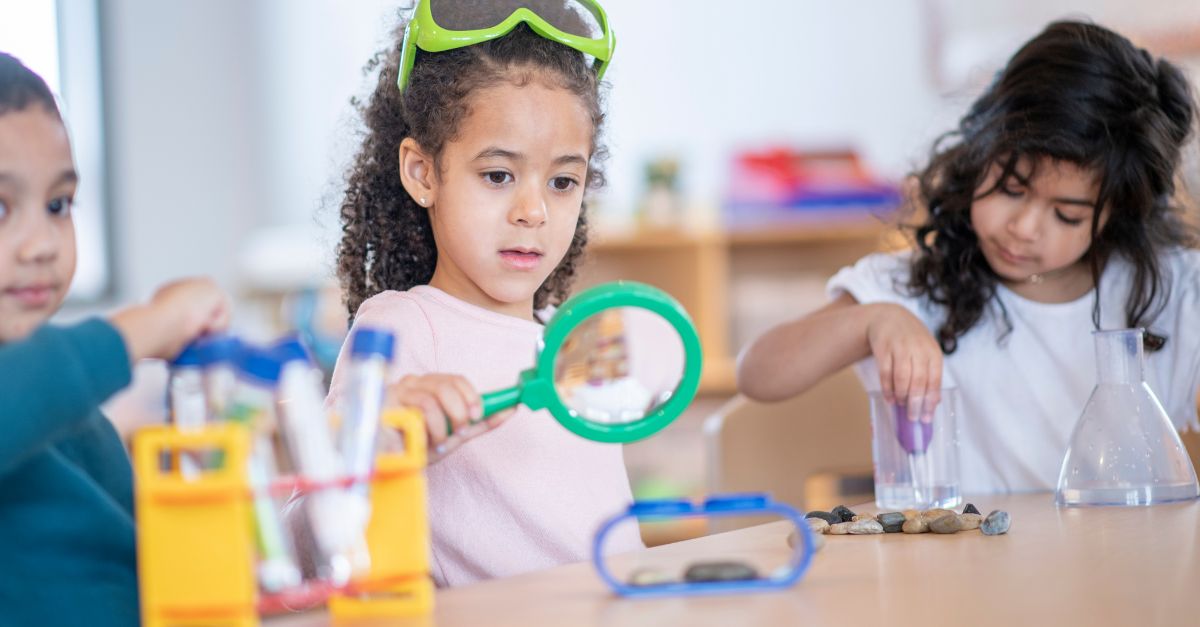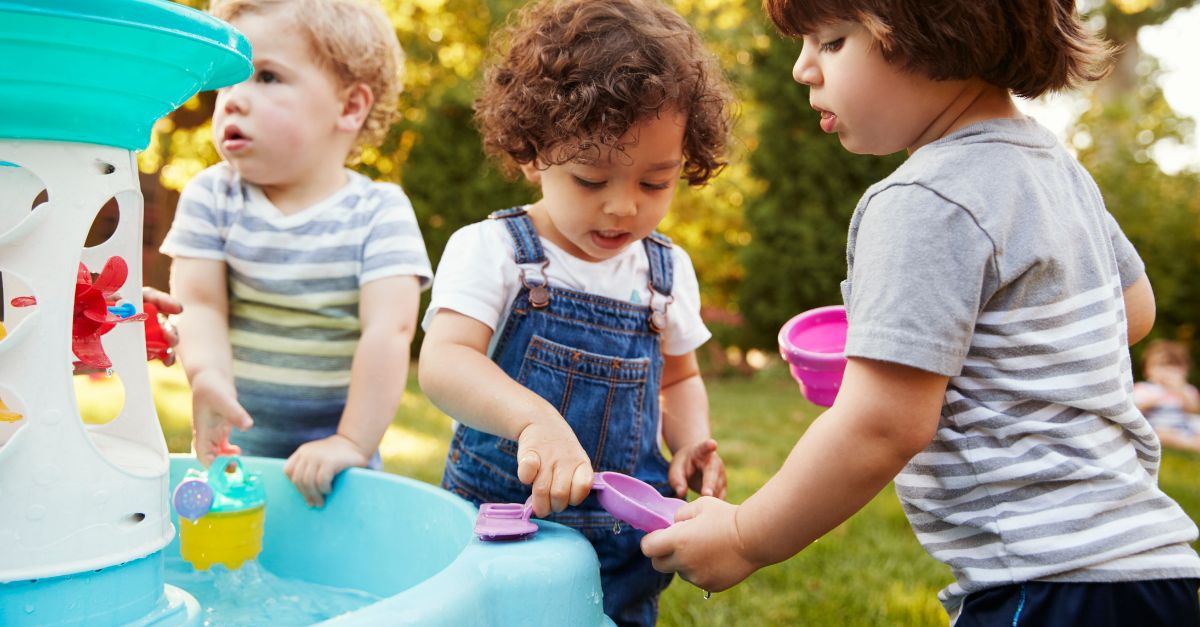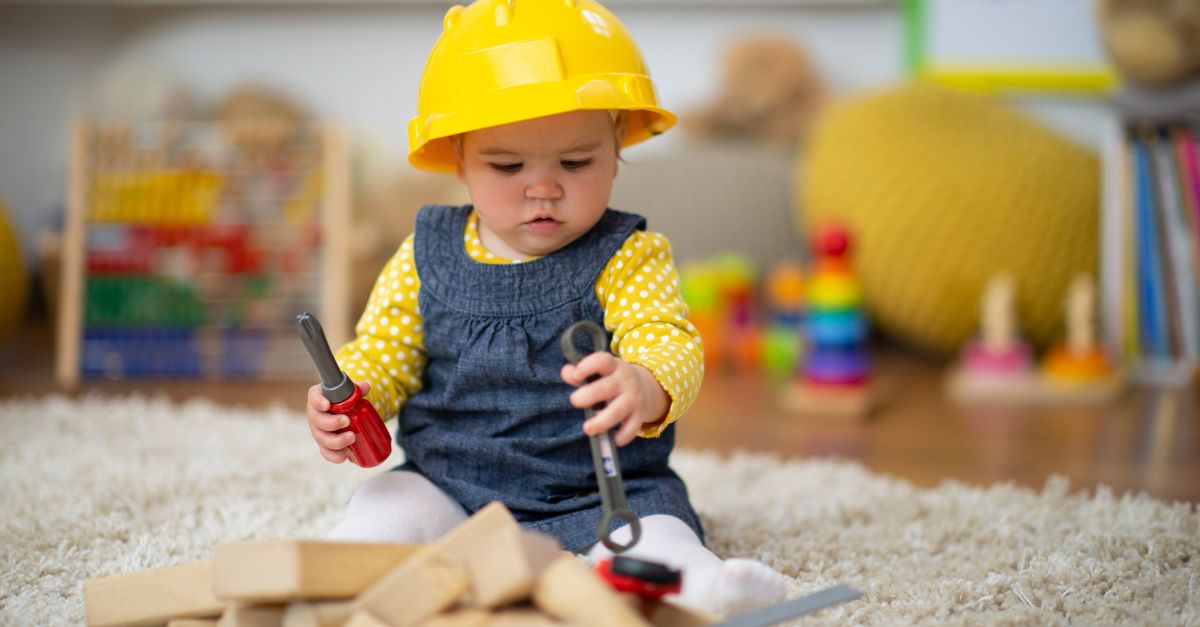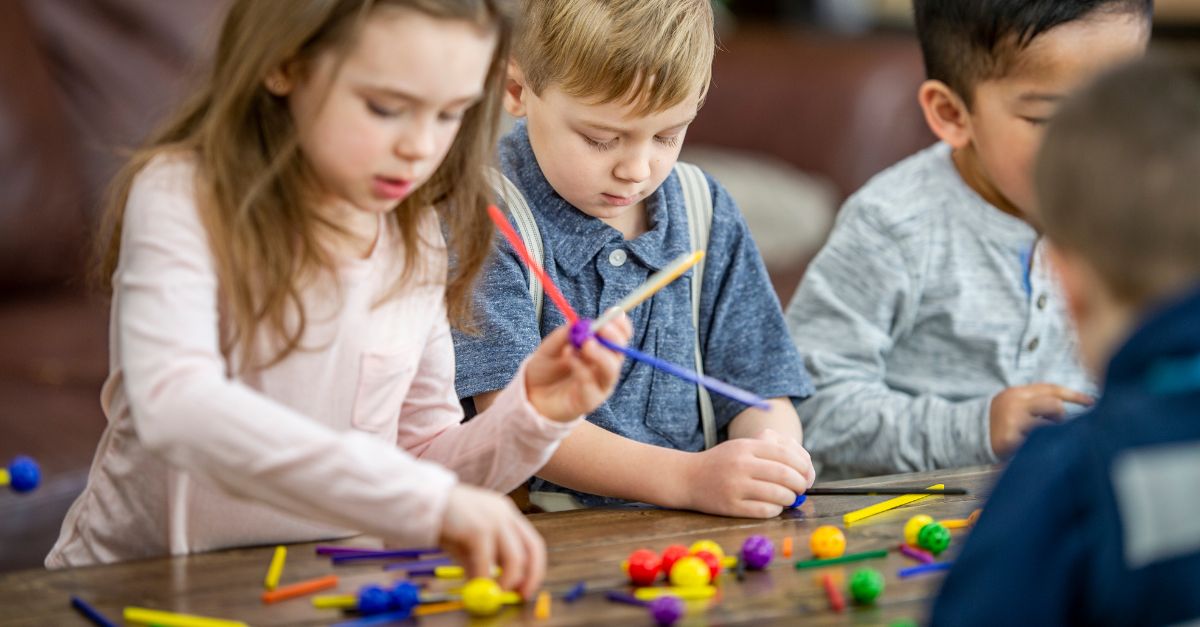STEM education (Science, Technology, Engineering, and Mathematics) is a cornerstone of preparing young minds for the future. Research highlights that introducing STEM concepts to children before the age of eight can significantly impact their academic success and enhance skills like problem-solving, critical thinking, and communication. These skills, built early, are not only essential for STEM but also positively influence literacy and language development.

The good news? Supporting STEM in early childhood classrooms can be simple, affordable, and seamlessly integrated into everyday activities. Many childcare activities can easily nurture curiosity and exploration, laying the groundwork for lifelong learning. Here are 5 simple activities that incorporate STEM concepts into daily routines:
1. Block Play: Building Cognitive and Math Skills
Stacking and arranging blocks lays the foundation for understanding engineering, math, and physics concepts. Through trial and error, children learn about balance, stability, and the physical world around them.
STEM Connection: Block play fosters spatial reasoning, an essential skill for math and engineering, and teaches concepts like symmetry and weight distribution.
Activity Ideas: Encourage children to build simple bridges for toy cars using wooden blocks, stack towers as tall as they can without toppling, or create basic structures to house items in their classroom (toy people, dinosaurs). Focus on open-ended exploration and let them experiment freely.
2. Water Play: Exploring Science and Experimentation
Water play is a hands-on way for children to explore scientific principles such as sinking and floating. By pouring, splashing, and experimenting, young children will also develop an understanding of cause and effect while strengthening their fine motor skills.
STEM Connection: Water play introduces early physics concepts, such as how objects interact with water (what floats vs what sinks) and how volume changes when containers are filled or emptied.
Activity Ideas: Provide containers of various shapes and sizes for children to measure and pour water, or create a floating-and-sinking experiment by collecting everyday objects and predicting outcomes.

3. Nature Walks: Connecting to the Natural World
Nature walks give young children the chance to explore their surroundings and discover plants, animals, and the changing weather. Observing and asking questions about the world around them helps build curiosity and early science skills.
STEM Connection: Exploring nature introduces children to ideas like how plants grow, how animals live in their habitats, and how the weather changes. It encourages observation and asking "why" and "how" questions, which are the foundation of scientific thinking.
Activity Ideas: Collect leaves or rocks and compare their shapes and textures. Look for bugs or birds and talk about what they do. Point out patterns in tree bark or flower petals, and let children share their observations.
4. Using Simple Tools: Introducing Engineering
Using tools like magnifying glasses, measuring tapes, or pretend-play screwdrivers lets young children explore how things work while building their fine motor skills. Hands-on exploration with tools helps them feel confident and curious about the world around them.
STEM Connection: Pretend tools introduce children to early engineering ideas, like how objects fit together, and helps them understand basic problem-solving and exploration skills.
Activity Ideas: Create a "fix-it station" where children can safely tinker with toys or pretend to repair everyday items. Or, use magnifying glasses to look closely at bugs, leaves, or textured materials in the classroom.

5. Matching Games: Laying the Groundwork for Math
Matching games are a fun way for young learners to explore the world around them. These activities help toddlers and preschoolers learn to recognize shapes, colors, and sizes while practicing basic math skills. By sorting and matching, children start to understand how to organize things and notice patterns in the world.
STEM Connection: Matching games are like little math puzzles, helping children spot patterns, group similar things, and begin understanding how objects relate to each other.
Activity Ideas: Use colorful trays or bins and invite children to sort toys, like blocks or animal figures, by color, size, or shape. You can also challenge them to make simple patterns using large beads, buttons, or crayons—anything that captures their interest!
The Role of Educators in Supporting STEM
While children's natural curiosity is a wonderful starting point, adult guidance can make all the difference. Encouraging exploration, asking thought-provoking questions, and providing hands-on learning spark deeper interest in young minds. But, to truly create inspiring learning experiences, educators need the right tools and support.
Research shows that when teachers are equipped with STEM training and resources, they can confidently foster a love of STEM learning in their classrooms. That's why Lillio Academy offers professional development courses like:
These courses empower educators to seamlessly integrate STEM into their curriculum, sparking excitement and curiosity in young learners.

Why Start Early?
STEM isn't just about science or math—it's about fostering critical thinkers who can analyze, communicate, and problem-solve. Studies consistently show that early STEM exposure creates interdisciplinary benefits, from improved literacy to enhanced social communication skills. These advantages prepare children for academic success and a bright future in a world increasingly reliant on STEM fields.
Incorporating STEM into childcare doesn't need to be complicated. By leveraging everyday experiences like block play, nature walks, and water experiments, educators can nurture children's curiosity and set them on a path of lifelong learning.
Interested in more developmentally appropriate STEM learning activities for toddlers and preschoolers? Lillio Learning, powered by FunShine Express, provides a thoughtfully designed curriculum created by educators and experts. With comprehensive physical and digital resources tailored for children aged 0-5, Lillio Learning offers valuable support to busy educators. Discover how it can enhance your teaching approach today. Learn more here.